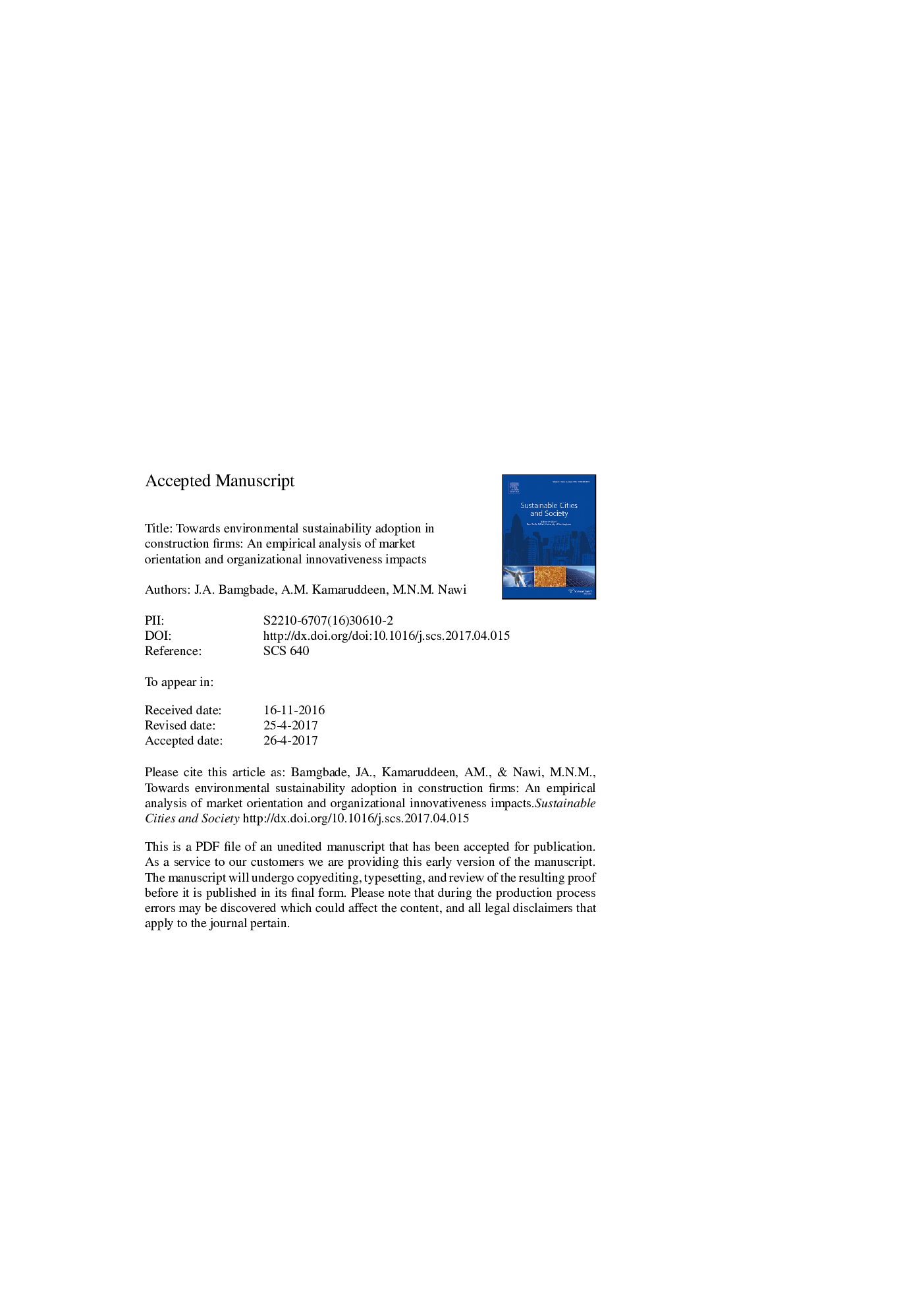| Article ID | Journal | Published Year | Pages | File Type |
|---|---|---|---|---|
| 4927989 | Sustainable Cities and Society | 2017 | 36 Pages |
Abstract
The contributions of the construction industry to the Greenhouse gas emissions due to non-renewable resource consumption have been generating discussions among stakeholders lately. Although the industry has been supporting lives both in urban spaces as well as in the suburban regions, the construction firms' resource consumption is detrimental to a sustained human environment. This paper empirically explores the organisational innovativeness factors and market orientation culture that could influence environmental sustainability adoption by Malaysian large construction firms. Both mail and personally-administered close-ended structured copies of questionnaire survey were employed to collect data from these construction firms. Partial Least Squares-Structural Equation Modeling technique was used to analyse 172 responses. The results indicated that market orientation and firm process innovativeness are capable of influencing the construction firms' environmental sustainability adoption. This implies that this study's model is a robust tool to predict the adoption of environmental sustainability by the construction companies. Although the findings of this study can be used to develop strategies to increase the rate of environmental sustainability adoption among the construction companies, it did not consider other relevant factors that could possibly and significantly explain the variance in environmental sustainability. Implications for research and practice and future recommendations were also discussed.
Related Topics
Physical Sciences and Engineering
Energy
Renewable Energy, Sustainability and the Environment
Authors
J.A. Bamgbade, A.M. Kamaruddeen, M.N.M. Nawi,
